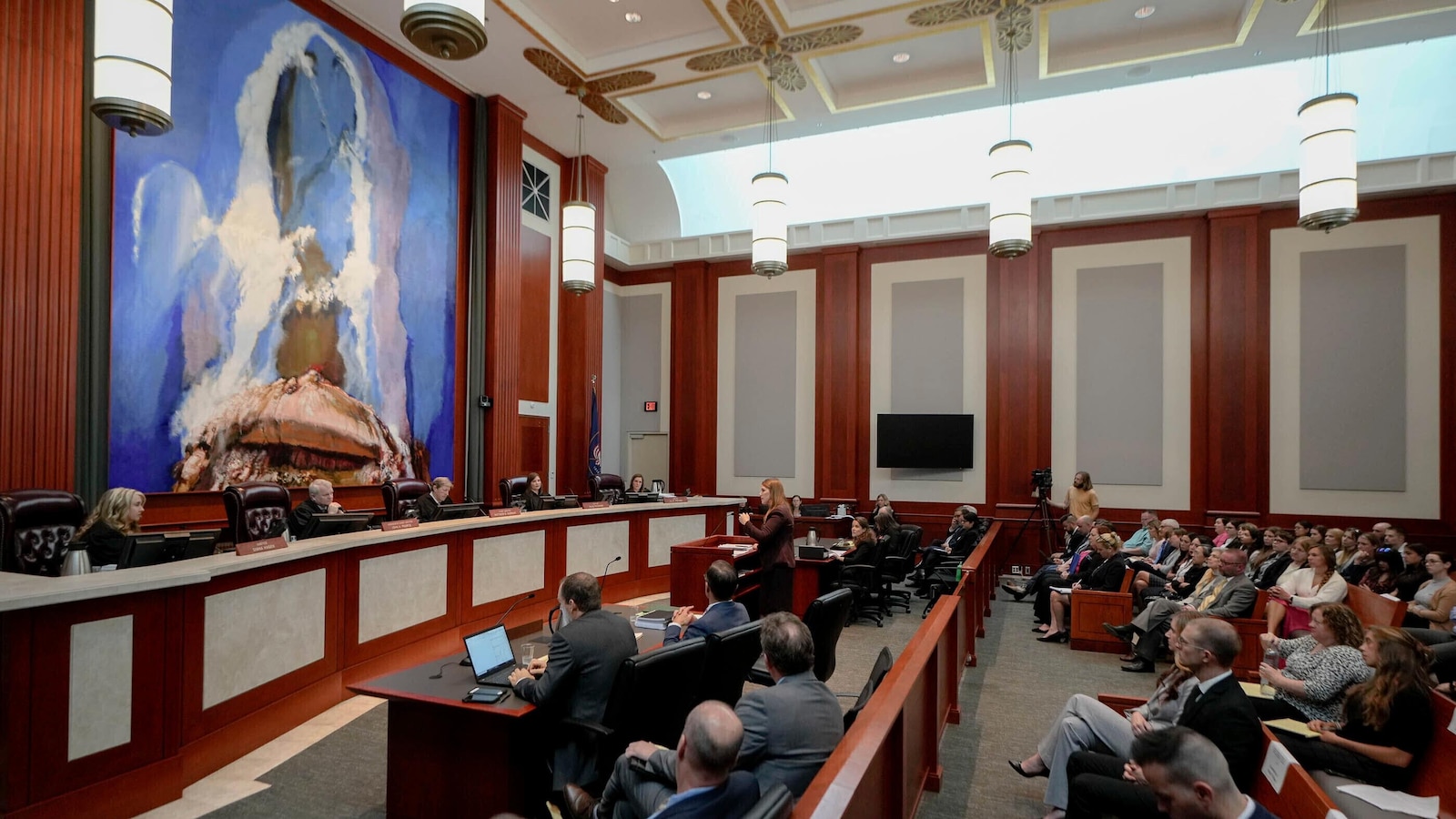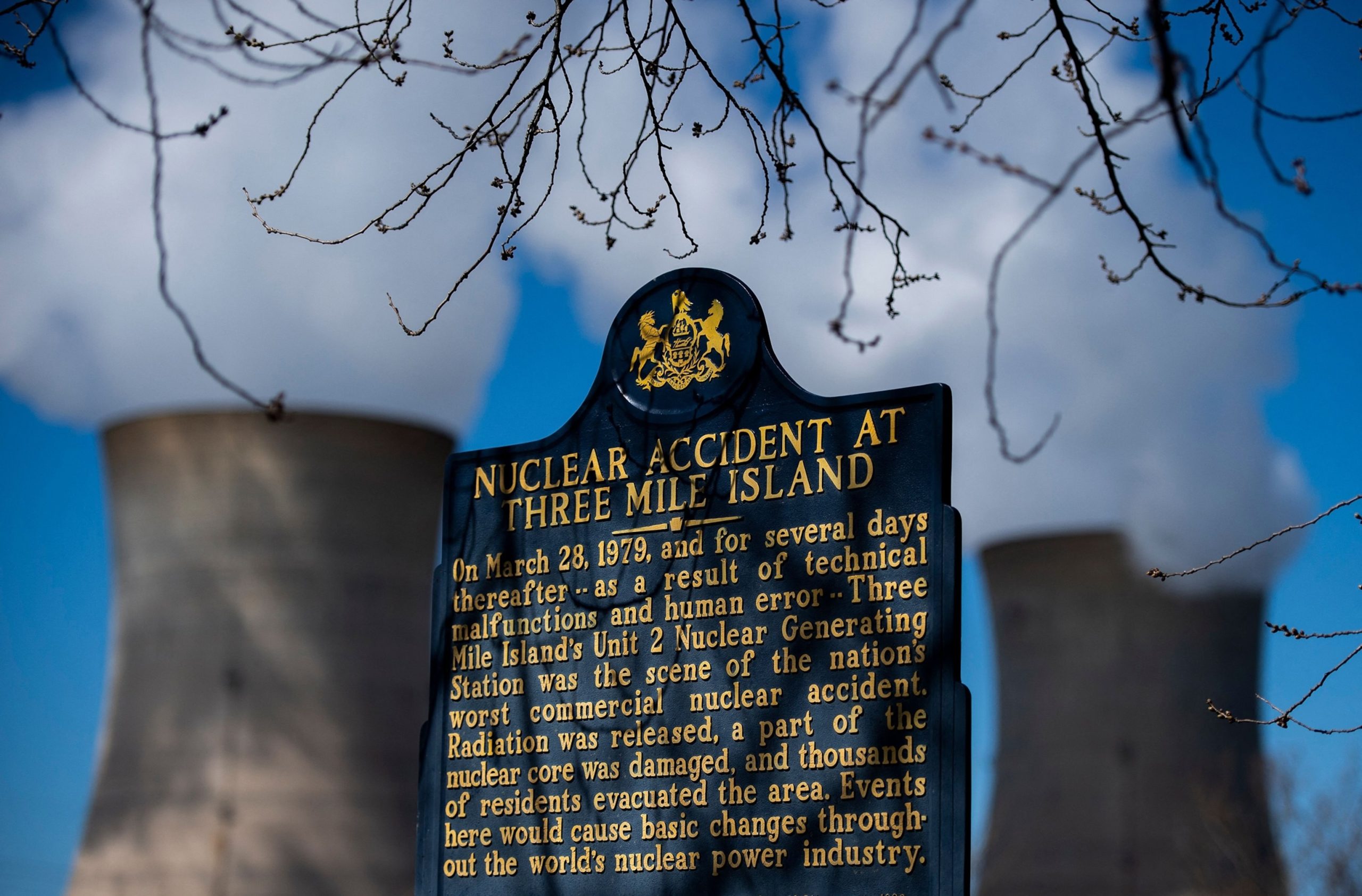
SALT LAKE CITY — A near-total abortion ban will remain on hold in Utah after the state Supreme Court ruled Thursday that the law should remain blocked until a lower court can assess its constitutionality.
With the decision, abortion remains legal up to 18 weeks under another state law that has served as a fallback as abortion rights have been thrown into limbo.
The panel wrote in its opinion that the Planned Parenthood Association of Utah had legal standing to challenge the state’s abortion trigger law, and that a lower court acted within its purview when it initially blocked the ban.
Their ruling only affects whether the restrictions remain on pause amid further legal proceedings and does not decide the final outcome of abortion policy in the state. The case will now be sent back to a lower court to determine whether the law is constitutional.
The trigger law that remains on hold would prohibit abortions except in cases when the mother’s life is at risk or there is a fatal fetal abnormality. A separate state law passed last year also allows abortions up to 18 weeks of pregnancy in cases of rape or incest.
Utah lawmakers passed the trigger law — one of the most restrictive in the nation — in 2020 to automatically ban most abortions should the U.S. Supreme Court overturn Roe v. Wade. When Roe fell in June 2022, abortion rights advocates in Utah immediately challenged the law, and a district court judge put it on hold a few days later.
Kathryn Boyd, president and CEO of the Planned Parenthood Association of Utah, celebrated the ruling Thursday and said she hopes the lower court will ultimately strike down the trigger law so they can continue serving patients without political interference.
“Today’s decision means that our patients can continue to come to us, their trusted health care providers, to access abortion and other essential reproductive services right here in Utah,” Boyd said. “While we celebrate this win, we know the fight is not over.”
Several Republican state lawmakers who had worked to pass the law, including Rep. Karianne Lisonbee of Davis County, criticized the court for keeping it on hold.
“I am extremely disappointed that the Supreme Court failed to lift the preliminary injunction and has not allowed Utah’s abortion law to go into effect,” she said. “It’s deeply unfortunate that Utah’s strong pro-life law continues to be tied up in litigation more than two years after the Dobbs decision, resulting in the deaths of thousands of unborn babies in our state.”
Since the U.S. Supreme Court decision, most Republican-led states have implemented abortion bans or heavy restrictions. Currently, 14 states are enforcing bans at all stages of pregnancy, with some exceptions. Four more have bans that kick in after about six weeks of pregnancy — before many women realize they’re pregnant.
Besides Utah’s, the only other ban currently on hold due to a court order is in neighboring Wyoming.
When the U.S. Supreme Court determined there was no right to abortion in the federal Constitution, a key legal question became whether state constitutions have provisions that protect abortion access. State constitutions differ, and state courts have come to different conclusions. In April, the Arizona Supreme Court ruled that an abortion ban adopted in 1864 could be enforced — but lawmakers quickly repealed it.
Abortion figures to be a major issue in November’s elections, with abortion-related ballot measures going before voters in at least six states. In the seven statewide measures held since Roe was overturned, voters have sided with abortion rights advocates each time.
In recent news, a lower court in Utah is set to assess the constitutionality of the state’s near-total abortion ban, which has been temporarily blocked from taking effect. This decision comes after a federal judge issued a preliminary injunction against the controversial law, which would ban most abortions after 18 weeks of pregnancy.
The law, known as HB 136, was passed by the Utah legislature earlier this year and signed into law by Governor Spencer Cox. It includes exceptions for cases of rape, incest, fetal abnormalities, and serious health risks to the mother. However, it does not include exceptions for cases of severe fetal abnormalities or for cases where the pregnancy poses a threat to the mother’s mental health.
Opponents of the law argue that it is unconstitutional and violates the landmark Supreme Court decision in Roe v. Wade, which established a woman’s right to choose to have an abortion. They also argue that the law puts women’s health and lives at risk by restricting access to safe and legal abortion care.
The preliminary injunction issued by the federal judge blocks the law from taking effect while the court assesses its constitutionality. This means that the near-total abortion ban will remain blocked for now, allowing women in Utah to continue to access abortion care as they have before.
Proponents of the law argue that it is necessary to protect the rights of unborn children and to promote a culture of life in Utah. They believe that the law reflects the values of the state and its residents, who are overwhelmingly pro-life.
The lower court’s assessment of the constitutionality of HB 136 will be a crucial moment in the ongoing debate over abortion rights in Utah and across the country. It will determine whether the law can stand or whether it will be struck down as unconstitutional.
In the meantime, advocates on both sides of the issue are gearing up for a legal battle that could have far-reaching implications for women’s reproductive rights in Utah and beyond. The outcome of this case will be closely watched by those on all sides of the abortion debate, as it has the potential to shape the future of abortion access in the state and beyond.


